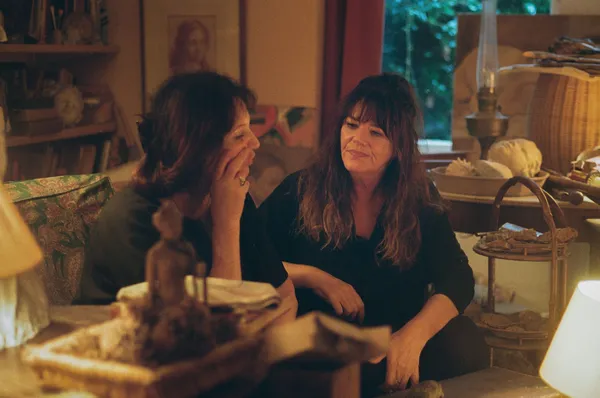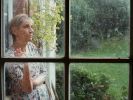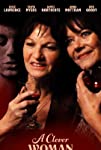Eye For Film >> Movies >> A Clever Woman (2022) Film Review
A Clever Woman
Reviewed by: Jennie Kermode

Named after the Mary Elizabeth Coleridge poem, Jon Sanders’ gently paced, thoughtful new film opens with a rendition of that poem in song by sisters Phoebe (Tanya Myers) and Dot (Josie Lawrence), with piano accompaniment by Tom (James Northcote). He has been looking after their mother’s house since her death, and now that they have arrived to deal with her possessions and say their final goodbyes to the place, the poem seems to speak to a personality which they both struggled to reconcile with and whose influence continues to shape their behaviour. “You thought because I had a mind that I could have no heart at all.”
Phoebe and Dot are performance artists and their manager, Monica (Anna Mottram), who is also a longstanding friend, is helping with the process of sorting out the house. She acts as a sounding board when they discuss old memories and their complex relationships with both of their parents. When they wander down the coast to get some air on a beach which their dad used to love, she and Tom go through an attic filled with old toys. A dolls’ house, the façade of a puppet theatre, an elephant hat which Tom wanders around in for a while. The pair delight in their discoveries but the reason that they’re doing this is clear – there is simply too much emotion invested in these things for the sisters to handle.

Tempers fray and cruel things are said as the emotional pressure of the situation ebbs and flows. The sisters are very open with one another and very proactive when it comes to reckoning with their feelings about their mother, and she becomes a ghostly character in the film, for a time embodied by a dress laid out on a bed. Her wardrobe and shoes hint at an aggressively feminine style, but it’s clear that she lived by her own rules, making her own choices and often refusing to put others’ needs first. Herein lies the relationship to Coleridge’s body of work. There is discussion of behaviour which would not have stood out in the same way had she been male. The sisters seem to recognise and admire her assertion of her own freedom, yet they struggle with what that meant for them and for their father.
Catalysing some of this is the presence of Tom. Though quiet and unobtrusive, except when called upon for support, he seems to represent temptation for all three of the women, and thus to create fractures in their relationships. This, he is eventually told, is something which happens from time to time. The three of them will always figure it out. His awareness of his own relative unimportance complicates the gender politics of the film. Unwittingly, he takes up a portion of space normally accorded to women, presenting a counterpoint to the dead woman’s central melody.
For most of its running time, the film is devoid of music. The silence matters, highlighting the void where another voice used to be. It makes viewers acutely aware of passing time as well as the timelessness which comes with grief: whatever happens here will take as long as it needs to. Intermittently, we return to Coleridge’s poems, with further recitals occurring at key moments of the film and keeping the drama in balance.
It’s theatrical, of course. We spend most of our time inside the house in spaces which could as easily be rendered on a stage, but presenting it as film allows the actors to go deeper inside their characters, improvising the dialogue, with Sanders knitting together the best stuff. The house is located on the Isle of Wight and becomes, itself, an island, a place where the sisters sometimes felt isolated by the choppy tide of village opinion about their mother. This suits a small, intimate story focused on the experience of being a more commonly objectified sex.
The point here is not the scandal, nor any great revelation, but Phoebe and Dot’s gradual process of learning how to be all of themselves, to shed feelings of guilt which are not their own and create themselves independently of their mother’s shadow. Through their continued closeness to one another they discover and reassess different aspects of her being, sometimes regressing into childhood behaviours. In the end, they must find a way to move beyond this and unabashedly lay claim to adulthood.
Reviewed on: 16 Apr 2023

















